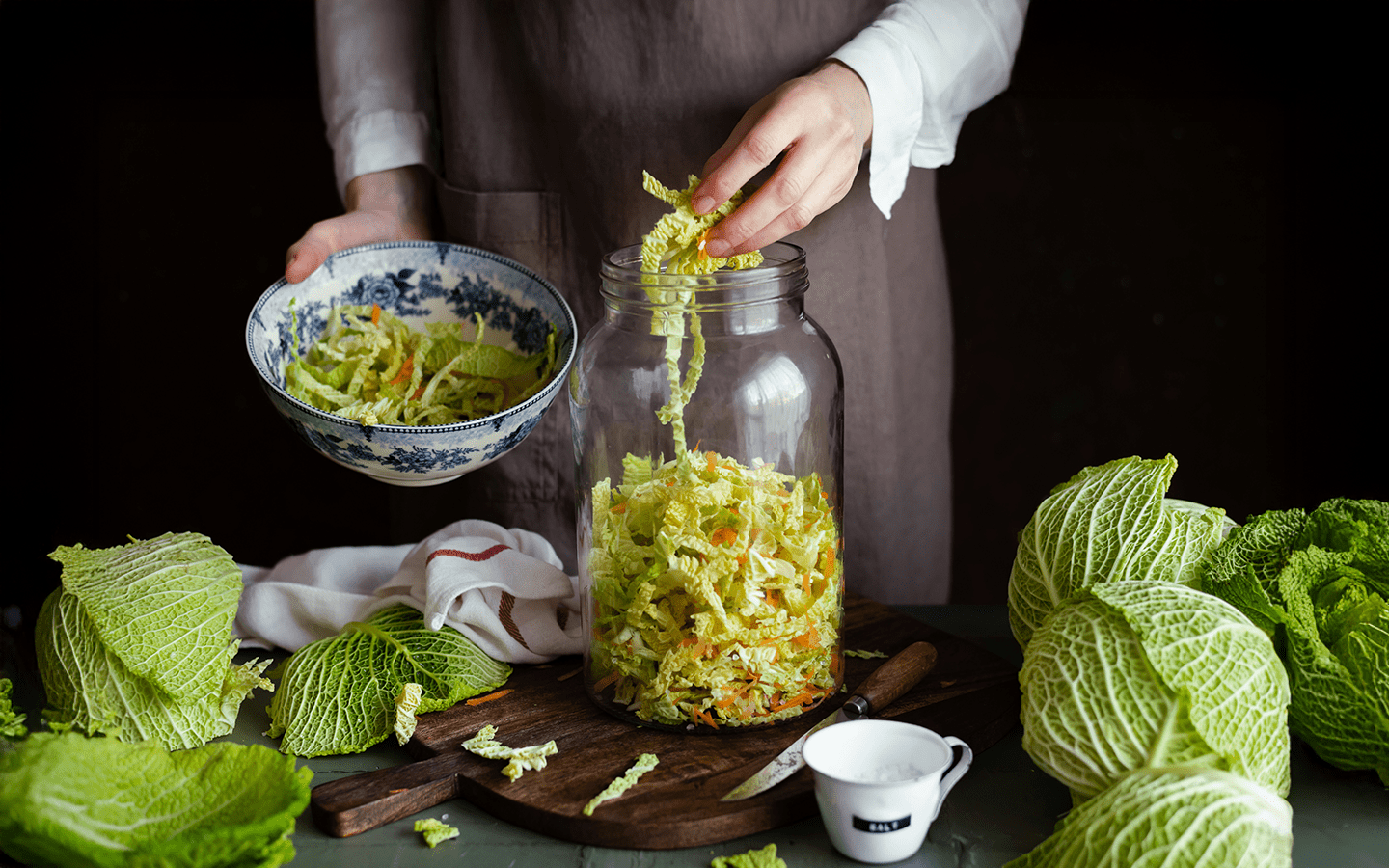
Digestive Drama: How to De-Bloat Naturally and Feel Light Again
Have you ever found yourself struggling to zip up your pants by afternoon, wondering where that uncomfortable bloating came from? You're not alone, and more importantly, you don't have to suffer through it.
By afternoon, does bloating render your pants punishingly tight? Are digestive dramas triggering you to sprint out of business meetings unceremoniously? I understand completely. As a Doctor of Acupuncture & Chinese Medicine with over 20 years of experience helping women reclaim their vitality, I've witnessed countless patients transform their digestive health using natural, holistic approaches that address the root causes rather than just managing symptoms.
Let's explore how you can say goodbye to that uncomfortable, heavy feeling and hello to lightness and ease—naturally.
Understanding the Root Causes of Bloating
Before we dive into solutions, it's essential to understand that bloating isn't just about what you ate for lunch. From a Traditional Chinese Medicine (TCM) perspective, digestive disturbances often reflect deeper imbalances in your body's energy systems.
The TCM View: Your Digestive Fire
In Chinese medicine, we consider your digestive system as having its own "fire"—the spark that transforms food into energy. When this digestive fire becomes weak or scattered, symptoms like bloating, gas, and discomfort naturally follow. Think of it as trying to cook with a flickering flame versus a steady, strong fire.
Your spleen and stomach meridians work together as the body's digestive powerhouse. When these systems are harmonious, food transforms efficiently into nourishment. When they're out of balance? That's when the digestive drama begins.
Modern Contributors to Digestive Disruption
Our fast-paced lifestyle creates perfect conditions for digestive chaos:
- Stress eating: Rushing through meals while cortisol floods your system
- Inflammatory foods: Processed foods, refined sugars, and unhealthy fats that trigger your body's alarm system
- Hormonal fluctuations: Especially during perimenopause and menopause when estrogen shifts affect your gut microbiome
- Poor hydration: Not drinking enough water—or drinking it ice-cold, which dampens your digestive fire
- Lymphatic congestion: When your body's drainage system becomes sluggish, everything backs up
The Lymphatic Connection: Your Body's Hidden Drainage System
Here's something most people don't realize: bloating isn't always about your stomach. Often, it's about your lymphatic system—your body's natural drainage network that doesn't have its own pump like your heart does.
When lymph gets stuck in areas like your abdomen, it can cause that puffy, uncomfortable feeling that makes you want to unbutton your pants. Unlike your circulatory system, your lymphatic system relies on movement and gentle stimulation to function optimally.
Signs Your Lymphatic System Needs Support
- Persistent bloating, especially after meals
- Water retention and puffiness
- Fatigue and sluggish feeling
- Skin issues like dullness or breakouts
- Frequent colds or slow recovery from illness
Natural De-Bloating Strategies That Actually Work
1. Embrace Digestive-Friendly Eating Habits
From both TCM and modern nutritional perspectives, how you eat matters as much as what you eat.
Eat Warm, Cooked Foods: In TCM, we believe cold and raw foods require more energy to digest, essentially dampening your digestive fire. This doesn't mean you can never have a salad, but try incorporating more:
- Warming spices like ginger, cinnamon, and turmeric
- Cooked vegetables instead of always eating raw
- Room temperature or warm water with meals
- Soups, stews, and gentle broths
Practice Mindful Eating: Before each meal, take a moment to appreciate your food. This simple act reduces stress and promotes better digestion by activating your parasympathetic nervous system—your "rest and digest" mode.
Chew Thoroughly: Your stomach doesn't have teeth. Proper chewing not only breaks down food mechanically but also triggers digestive enzymes and helps prevent that uncomfortable post-meal bloat.
2. Anti-Inflammatory Food Choices
Your food choices can either fuel inflammation or fight it. Focus on:
Cooling Foods for Inflammation: Include cucumber, watermelon, leafy greens, and chrysanthemum tea to reduce internal heat and inflammation.
Fiber-Rich Foods: Support your gut microbiome with whole grains, legumes, fruits, and vegetables. Fiber acts like a gentle brush, ensuring smooth digestion and healthy elimination.
Omega-3 Rich Options: Fatty fish, walnuts, and flaxseeds help reduce inflammation throughout your digestive tract.
Avoid Common Triggers: Minimize processed foods, refined sugars, artificial sweeteners, and excessive dairy—all known contributors to digestive distress and inflammation.
3. Lymphatic Drainage Techniques for De-Bloating
Since bloating often involves lymphatic congestion, gentle drainage techniques can provide remarkable relief. Research has shown that manual lymphatic drainage can effectively reduce swelling and promote fluid movement, making it particularly valuable for addressing bloating.
DIY Abdominal Lymphatic Massage:
- Lie comfortably on your back
- Using gentle, circular motions, massage your abdomen clockwise for 2-3 minutes
- Use light pressure—remember, lymphatic vessels are just beneath the skin
- Focus on the area just below your ribcage and around your navel
- Finish by gently stroking from your abdomen toward your heart
Dry Brushing: Before your morning shower, use a natural bristle brush to gently stroke your skin toward your heart. This stimulates lymphatic flow and can significantly reduce bloating over time.
Movement as Medicine: Your lymphatic system relies on muscle contractions to move fluid. Even gentle movement like walking, stretching, or yoga can help get things flowing again.
4. Hydration That Heals
Proper hydration is crucial for both digestion and lymphatic function, but the temperature and timing matter.
TCM Hydration Principles:
- Drink room temperature or warm water to support your digestive fire
- Sip water throughout the day rather than chugging large amounts
- Avoid ice-cold beverages, especially with meals
- Try warm ginger tea or chrysanthemum tea for digestive support
Aim for: At least 8 glasses of water daily, adjusting for your activity level and climate.
5. Stress Management for Digestive Peace
Chronic stress is one of the biggest culprits behind digestive drama. When you're stressed, your body diverts energy away from digestion toward dealing with the perceived threat. Studies show that stress affects the gastrointestinal tract by altering gut motor function and increasing inflammation.
Quick Stress-Busters:
- Take five deep breaths before each meal
- Try gentle yoga or tai chi
- Practice meditation, even for just 5-10 minutes daily
- Prioritize quality sleep—your digestive system repairs itself at night
Foods That Fight Bloat vs. Foods That Fuel It
Bloat-Fighting Champions
Ginger: This warming spice stimulates digestion and reduces inflammation. Try fresh ginger tea or add it to stir-fries and soups.
Fennel: Known for its carminative properties, fennel helps release trapped gas and soothes digestive upset.
Peppermint: A natural antispasmodic that can calm digestive muscles and reduce bloating.
Papaya and Pineapple: These fruits contain natural digestive enzymes that help break down proteins.
Leafy Greens: Rich in fiber and magnesium, which support healthy elimination.
Bloat-Triggering Troublemakers
Refined Carbohydrates: White bread, pastries, and processed snacks cause rapid blood sugar spikes and inflammation.
Artificial Sweeteners: These can disrupt your gut bacteria and often cause more bloating than they prevent.
Excessive Salt: Leads to water retention and puffiness throughout your body.
Carbonated Beverages: The bubbles can literally inflate your digestive tract.
High-FODMAP Foods: If you're sensitive, foods like garlic, onions, beans, and certain fruits can trigger significant bloating.
The Hormonal Connection: Perimenopause and Digestive Changes
If you're in your 40s or beyond, hormonal shifts during perimenopause and menopause can significantly impact your digestive health. Declining estrogen affects your gut microbiome—the community of trillions of bacteria that play a vital role in digestion, immunity, and even mood.
During this transition, many women notice:
- Increased bloating and gas
- Changes in bowel habits
- New food sensitivities
- Slower digestion
- More pronounced PMS-related digestive symptoms
Hormone-Supporting Strategies:
- Include fermented foods like kimchi, kefir, and sauerkraut to support gut bacteria
- Consider adaptogenic herbs like ashwagandha to help your body manage stress
- Prioritize protein at each meal to support hormone production
- Work with a qualified practitioner to explore whether acupuncture or herbal medicine might help
When to Seek Professional Support
While natural approaches are incredibly effective, sometimes you need additional support. Consider consulting with a healthcare practitioner if you experience:
- Persistent bloating that doesn't improve with dietary changes
- Severe cramping or pain
- Changes in bowel habits lasting more than a few weeks
- Blood in stool
- Unexplained weight loss
- Symptoms that interfere with your daily life
As an acupuncturist, I often see dramatic improvements in digestive health when we address the whole person—not just the symptoms. Acupuncture can help regulate your nervous system, reduce inflammation, and restore proper energy flow to your digestive organs.
Your 7-Day De-Bloat Action Plan
Ready to feel lighter and more comfortable? Here's a gentle week-long protocol to get you started:
Day 1-2: Reset and Assess
- Start each morning with warm lemon water
- Eliminate processed foods, refined sugars, and artificial sweeteners
- Practice mindful eating—chew slowly and put your fork down between bites
- Try 5 minutes of gentle abdominal massage before bed
Day 3-4: Add Movement and Hydration
- Continue previous steps
- Add 10 minutes of gentle movement after each meal (even a short walk helps)
- Introduce anti-inflammatory spices like ginger and turmeric
- Increase water intake, focusing on room temperature or warm beverages
Day 5-6: Lymphatic Support
- Begin dry brushing each morning
- Try a gentle yoga flow or stretching routine
- Add fermented foods to support your gut microbiome
- Practice deep breathing exercises
Day 7: Integration and Planning
- Assess how you feel compared to Day 1
- Identify which changes made the biggest difference
- Plan how to incorporate your most effective strategies long-term
- Consider scheduling a consultation with a digestive health practitioner if needed
The Light at the End of the Tunnel
Remember, digestive health isn't about perfection—it's about finding what works for your unique body and lifestyle. Some days will be easier than others, and that's completely normal.
The goal isn't to never feel bloated again (though wouldn't that be nice?), but rather to understand your body's signals and have effective tools to support your digestive wellness.
Your journey to feeling light and comfortable again starts with one small change. Whether that's drinking warm water with breakfast, taking a short walk after lunch, or practicing five minutes of mindful breathing before dinner, every step counts.
As I often tell my patients: your body has an incredible capacity to heal and find balance. Sometimes it just needs a little support and the right environment to do what it does best—keep you feeling vibrant and healthy.
Ready to transform your digestive health? Start with one or two of these strategies today. Your future self—the one who feels light, comfortable, and energized after meals—will thank you. If you're ready to explore how professional lymphatic drainage or acupuncture can support your digestive wellness journey, I'm here to help.
Remember, lasting change happens gradually. Be patient with yourself as you discover what helps your unique body feel its best. And if you're struggling with persistent digestive issues, don't hesitate to seek support from a qualified healthcare practitioner who can help address the root causes of your symptoms.













